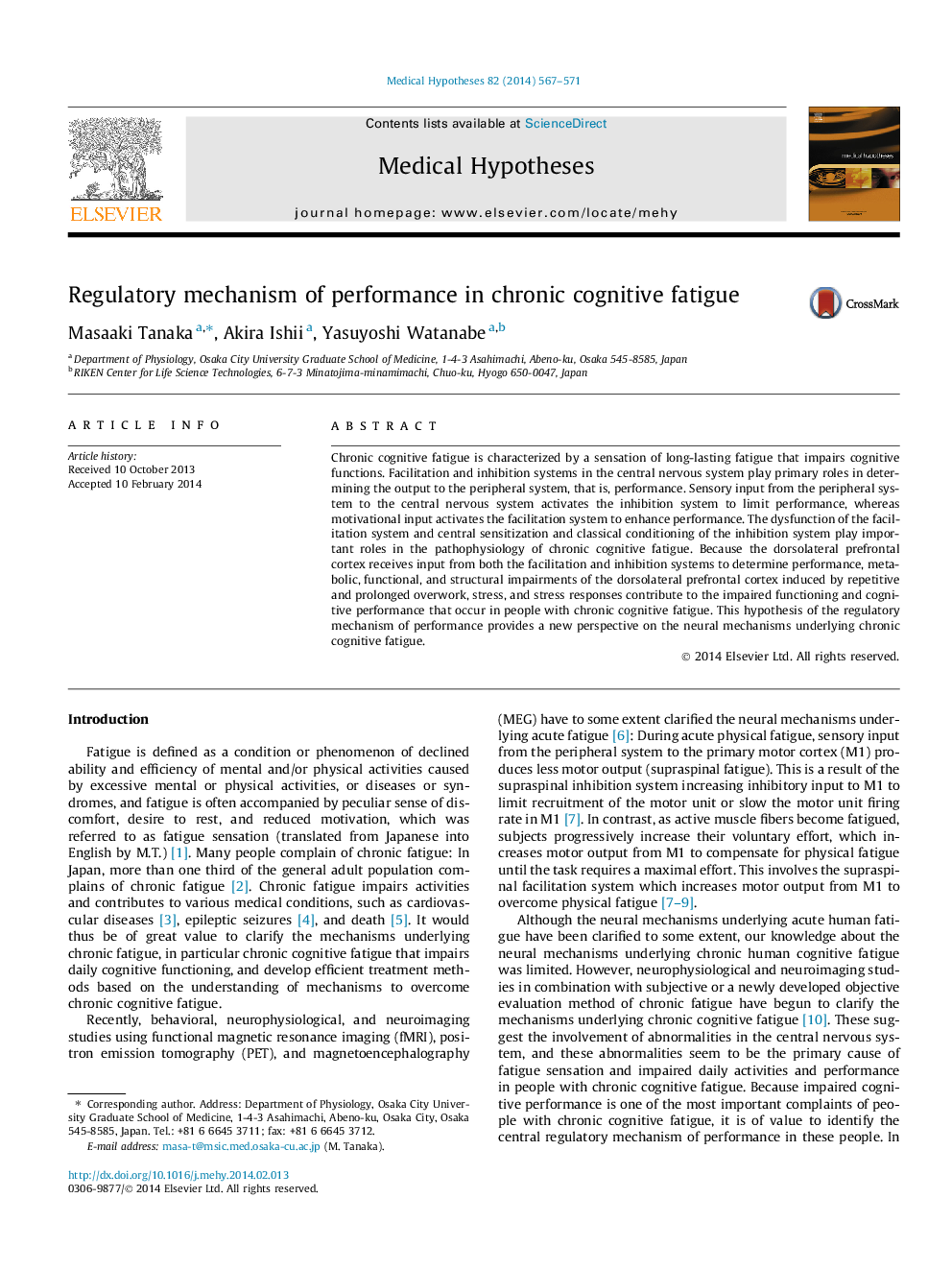| Article ID | Journal | Published Year | Pages | File Type |
|---|---|---|---|---|
| 5811997 | Medical Hypotheses | 2014 | 5 Pages |
Abstract
Chronic cognitive fatigue is characterized by a sensation of long-lasting fatigue that impairs cognitive functions. Facilitation and inhibition systems in the central nervous system play primary roles in determining the output to the peripheral system, that is, performance. Sensory input from the peripheral system to the central nervous system activates the inhibition system to limit performance, whereas motivational input activates the facilitation system to enhance performance. The dysfunction of the facilitation system and central sensitization and classical conditioning of the inhibition system play important roles in the pathophysiology of chronic cognitive fatigue. Because the dorsolateral prefrontal cortex receives input from both the facilitation and inhibition systems to determine performance, metabolic, functional, and structural impairments of the dorsolateral prefrontal cortex induced by repetitive and prolonged overwork, stress, and stress responses contribute to the impaired functioning and cognitive performance that occur in people with chronic cognitive fatigue. This hypothesis of the regulatory mechanism of performance provides a new perspective on the neural mechanisms underlying chronic cognitive fatigue.
Related Topics
Life Sciences
Biochemistry, Genetics and Molecular Biology
Developmental Biology
Authors
Masaaki Tanaka, Akira Ishii, Yasuyoshi Watanabe,
